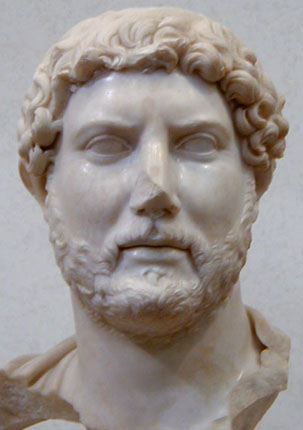How Do You Solve a Problem Like Maria?
My guilty pleasure since we arrived in England has been a Saturday night reality programme on BBC One called How Do You Solve a Problem Like Maria? I have never been a fan of reality shows in the United States, and have steadfastly avoided being sucked into the vortex of American Idol, so I was surprised how quickly I was hooked on Maria. Like American Idol, Maria is a singing competition, but there are important differences. On Maria, the contestants are competing for the role of Maria Von Trapp in an upcoming West End production of The Sound of Music, co-produced by Andrew Lloyd Webber. Thus, all of the contestants are attractive young women. As on Idol, there is a panel of judges, but each week the actual voting is up to the viewers. At the end of each week’s show, the two least popular contestants compete in a “sing-off,” performing an Andrew Lloyd Webber song in front of Webber himself, who is allowed to “save” one of the two girls. The show ends with the remaining “Marias” singing “So Long, Farewell” to the Maria who has been given the boot. Not surprisingly, the host of the show is Graham Norton, who is gay and partial to iridescent suits with a pinkish sheen.
I’m reminded occasionally that in the seventeenth century the Puritans cleared out of England and went off to establish their theocracy in America. Three and four centuries ago, England was ruthless in its enforcement of the middle way of Anglicanism. Their record of persecution in the pursuit of religious moderation is shameful, as the experience of English Catholics in the seventeenth century attests, and religious toleration came slowly to England. Catholic emancipation (the granting of full political and civil rights to English Catholics) came as late as 1829. The Church of England is still the established church, and the separation of church and state is not a part of English constitutional law—as my sons, taking mandatory religious education in their English school and discussing “the Christian concept of justice,” will readily attest.
One consequence of the departure of the Puritans from England is that the puritanical tradition was transplanted to America at a formative time in our history, and has yielded the current crop of fundamentalists who have hijacked American politics. In England, one of the consequences of an official “middle way” in religion seems to be that religion is defused as a political issue. Religion is a matter of cultural form and private devotion rather than a motivator of policy. In England, there is no divisive political debate on abortion (significantly, the English speak plainly of “abortion rights” rather than elliptically of “choice”), there is no mindless attack on evolution from a religious Right, and same-sex civil partners have the same legal rights as heterosexual married couples.
In his sermon two Sundays ago, the vicar of St. Nicholas church in Kenilworth sought to illustrate what Anglicans believe about communion. He stressed that Anglicans don’t believe that the bread and wine become the actual body and blood of Christ through the miracle of transubstantiation. He explained that the bread and wine become significant to Anglicans through a kind of convention, an agreement that the consecrated elements will have a kind of added value, even though they remain simply bread and wine. To illustrate, he took out a ten pound note and explained that the only thing that separates a ten pound note from a mere piece of paper is our (officially sanctioned) assignment of extra value to it. What I loved about this illustration was that the £10 note, which he held up from the pulpit to make his point, has a portrait of the Queen on one side and a portrait of Charles Darwin on the other.
In America, 55% of respondents to a Gallup poll expressed the belief that “God created humans in their present form.” The consequence of “freedom of religion” appears to be the freedom to give a religious answer to every question—including questions of science and public health that are not best answered by Biblical literalists.
I love America, and I have moments of intense homesickness every day. But there is much that I am coming to love about England. I love places like Baddesley Clinton, where sixteenth-century Catholic priests hid from their persecutors, which remind me that England was able to get beyond the days when Christianity was a deadly and divisive political issue. I love seeing Charles Darwin on the ten pound note. I love the flaming spectacle of a gay host in an iridescent suit moderating auditions for the role of a singing nun.
Sunday, September 10, 2006
Subscribe to:
Post Comments (Atom)


No comments:
Post a Comment